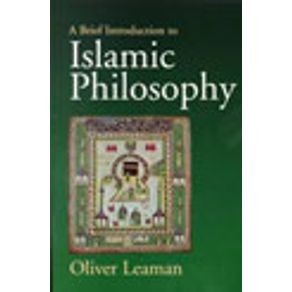Although Islamic philosophy represents one of the most important philosophical traditions in the world, it has only recently begun to receive the attention it deserves in the non-Islamic world. This important text provides a concise and accessible introduction to the major movements, thinkers and concepts within that tradition, from the foundation of Islam to the present day. Ever since the growth of Islam as a religious and political movement, Muslim thinkers have sought to understand the theoretical aspects of their faith by using philosophical concepts. Leaman outlines this history and demonstrates that, although the development of Islamic philosophy is closely linked with Islam itself, its form is not essentially connected to religion,and its leading ideas and arguments are of general philosophical significance. The author illustrates the importance of Islamic thought within philosophy through the use of many modern examples. He describes and contrasts the three main movements inIslamic philosophy - Peripatetic, Sufi and Illuminationist - and examines the Persian as well as the Arabic traditions. Comprehensive coverage is given to key aspects of Islamic philosophy, including epistemology, ontology, politics, ethics and philosophy of language, providing readers with a full and rounded view of the discipline. The main markets for this book are in the areas of philosophy, Islamic studies, Middle Eastern studies, cultural studies, religious studies and theology. It will beaccessible to second-year undergraduates and upwards and to the lay reader interested in philosophical and religious issues.


